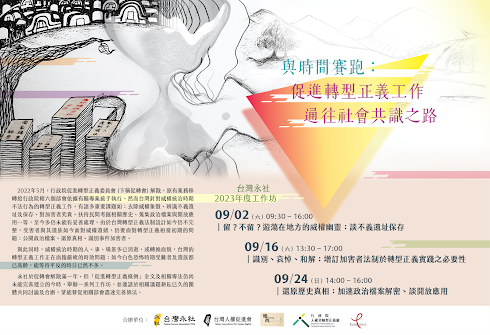Wu Ching-chin 吳景欽
(Wu Ching-chin is an associate professor, chair of Aletheia University’s law department and director of Taiwan Forever Association)
(作者為真理大學法律系副教授兼系主任、永社理事)
Translated by Eddy Chang
TAIPEI TIMES / Editorials 2015.05.13
http://www.taipeitimes.com/News/editorials/archives/2015/05/13/2003618144
On Tuesday last week, the Legislative Yuan approved on third reading the Implementation Act of the UN Convention Against Corruption (聯合國反貪腐公約施行法). The Ministry of Justice said the passing of the act shows the nation’s determination to crack down on corruption. However, most of the UN convention is already included in Taiwanese laws; what has been missing is enforcement.
According to articles 6 and 36 of the UN convention, each nation should establish one or more mechanisms to prevent and fight corruption. In Taiwan, apart from the Control Yuan, which is in charge of administrative investigation and punishment of misconduct by civil servants, every government agency has an anticorruption unit.
The ministry’s Investigation Bureau and Agency Against Corruption are responsible for investigating corruption offenses. The Supreme Prosecutors’ Office has the Special Investigation Division to deal with corruption involving high-level government officials. This shows that a number of anticorruption bodies were in existence long before the implementation act of the UN convention was passed.
Despite the large number of anticorruption agencies, they seem to always be one step behind in handling cases that have caused a public uproar and that could involve corruption; sometimes they take no action at all.
Consider the controversial construction of the Taipei Dome, for example. Ever since the deal was signed, there have been constant changes to the contract and the design as the project transformed from a sports and cultural park for the general public to a profit-oriented commercial center.
Surprisingly, the anticorruption agencies that should lead the charge against corruption have taken no action at all. After Taipei Mayor Ko Wen-je (柯文哲) took office last year, he established an anticorruption committee specifically to investigate these issues, and he declassified many documents to help expose the truth. The city’s Department of Government Ethics has deteriorated to a mere dependency, making itself an irrelevant unit that the capital could just as well do without.
Even more confusing is that the controversy over the construction of the Taipei Dome has lasted for quite some time. Several people have filed corruption lawsuits against the project’s decisionmakers, but the anticorruption agencies refuse to launch investigations, claiming insufficient evidence.
The problem is that the government has established several anticorruption agencies, hoping that the law enforcer will take the initiative to launch investigations, using the enforcement powers placed at their disposal by the law to obtain official documents that ordinary people cannot obtain.
If they wait for members of the public to file lawsuits and do not even intervene until the information provided is proven to be correct, they will miss the best opportunities for collecting evidence, while helping those who twist the law to obtain bribes and avoid legal sanctions.
In that case, what is the meaning of establishing so many anticorruption agencies and signing the UN convention?


